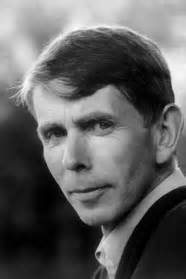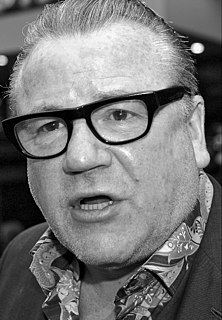A Quote by Ronald Frame
What appears on the page comes out of your experience, and no-one is going to see it in quite the same way - so, that being so, you're already doing something in a thoroughly individual and idiosyncratic way anyway.
Related Quotes
I love this idea of being able to touch people with something quite familiar, something quite emotional, and at the same time, have the feeling that this is a new way of doing it, a fresh way of showing things. I like radical people. At the same time, I'm fascinated by popularity, people who were able to have huge success and also keep their consistency.
When I was doing the screenplay, people who read the book Call Me by Your Name would go, "Oh god, what are you going to do about the peach scene?" I'd say, "I don't know, but I'll do something." And finally I figured out that there was a way of doing it without being totally graphic. You can do it in a way where the audience gets it and accepts it.
If you experience that feeling of being in a rut in your life, then something's not right. A lot of people who feel that way don't take the time to say, 'O.K., well, what am I doing? Is that what I want to be doing? What is it making me feel this way?' You have to identify what specifically is making you feel stuck.
The bigger the budget, the more people that you have to coordinate and it's not easy to do that always because, not only do people have trouble communicating in that way, but often there are internal disagreements and everybody is not necessarily on the same page. Even in a big-budget movie with famous actors and directors, everybody could be on a completely different page. The director has to figure out a way of getting everybody on the same page, more or less, and keeping them there.
Your career is not going to go the way you planned. It is impossible at the age of 23 to pick the right industry, the right company, and you can visualize what you're going to be doing in your 40s, 50s, and 60s, but chances are that it's going to be something quite different. So remain open to opportunities and change.
If you have a friend, what's the best way you can experience her beauty? It's to really accept her. She's weird in this way, I accept it. She's hard to talk to, I accept it. Then that person eventually will come all the way out into the sun. I think it's the same way with our talent. We say, "Look, I'm not going to judge you. I'm going to try to use you in the very best way."
Writing helps us heal in certain way, but it doesn't make the experience of thinking about writing that occasion any less painful. When you revisit trauma, you don't know what's going to be triggering for you because you don't know how it's connected in your mind. So in the same way when we write something, it doesn't completely resolve the experience for us. It can feel therapeutic, but that's not the reason why I do it. I do it to ask a question, or just to find meaning.
Yes, the fear of its blankness. At the same time, I kind of loved it. Mallarmé was trying to make the page a blank page. But if you're going to make the page a blank page, it's not just the absence of something, it has to become something else. It has to be material, it has to be this thing. I wanted to turn a page into a thing.
I would still be reading out loud. I think that if you are any kind of an artist, then validation is just sort of... it can be a result, but you're going to do the work anyway. Because you're just wired that way. It's so engrained, it's such a part of your personality that you don't just stop doing it. Eventually I'll retire on some level, eventually no one will want to buy my books or a ticket to see me read, it's inevitable that's going to happe
Everyone's path is completely different. I could give an aspiring artist my timeline and every phone number and contact person along the way, but their experience would be carved out in a different way. It's the diligence to keep going in the face of obstacles that is your best ally. It's also important to know why you are doing this... attention, money, or because you got something to say, or at least in what order those things matter.
My advice to teens is to try and do something that scares you every day because it's the only way you can test how far you can really go. Whether it's going out and auditioning for the play or trying out for the basketball team, you have to explore your boundaries and see where you really want to go and the only way you can do that is to break out of your shell.







































